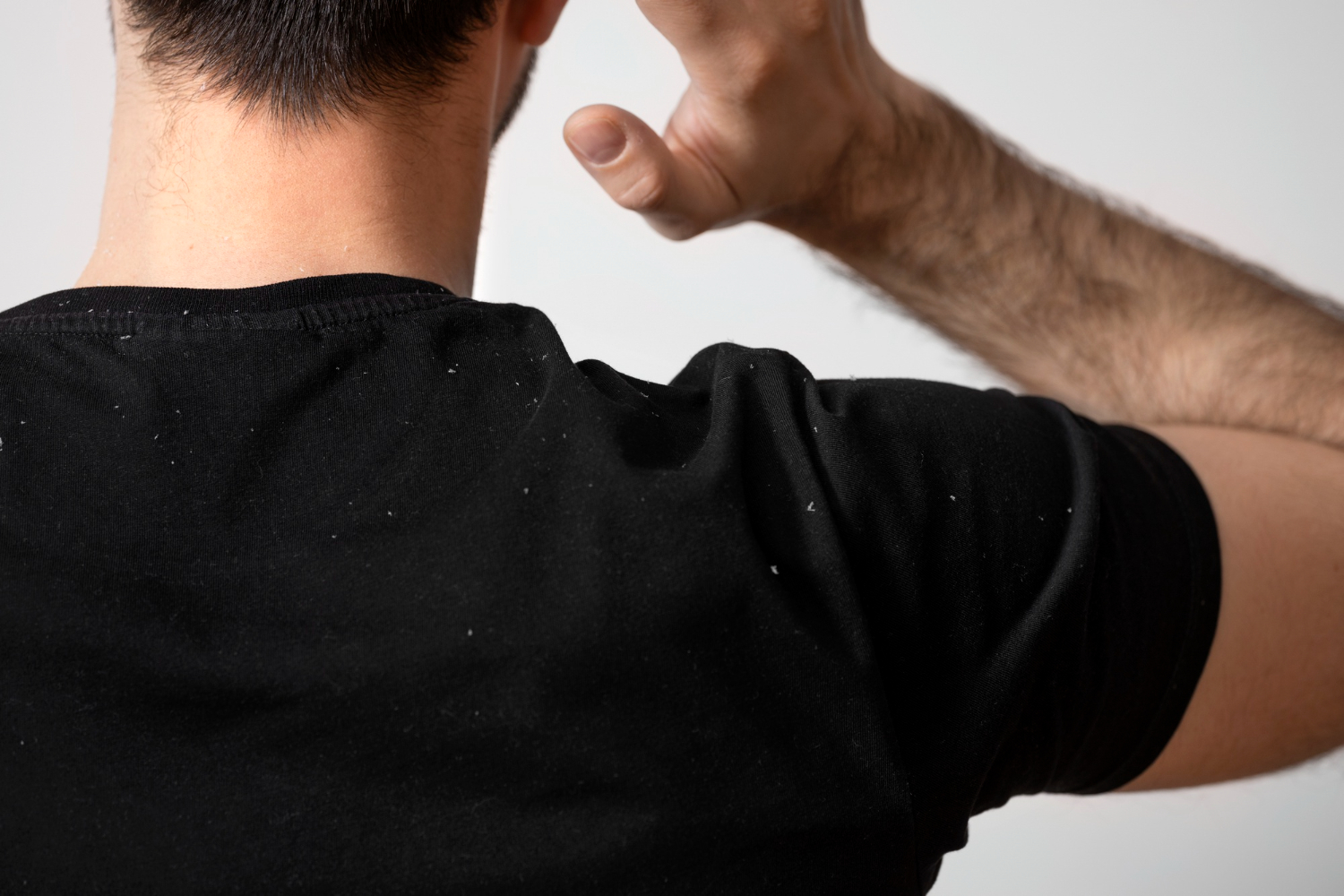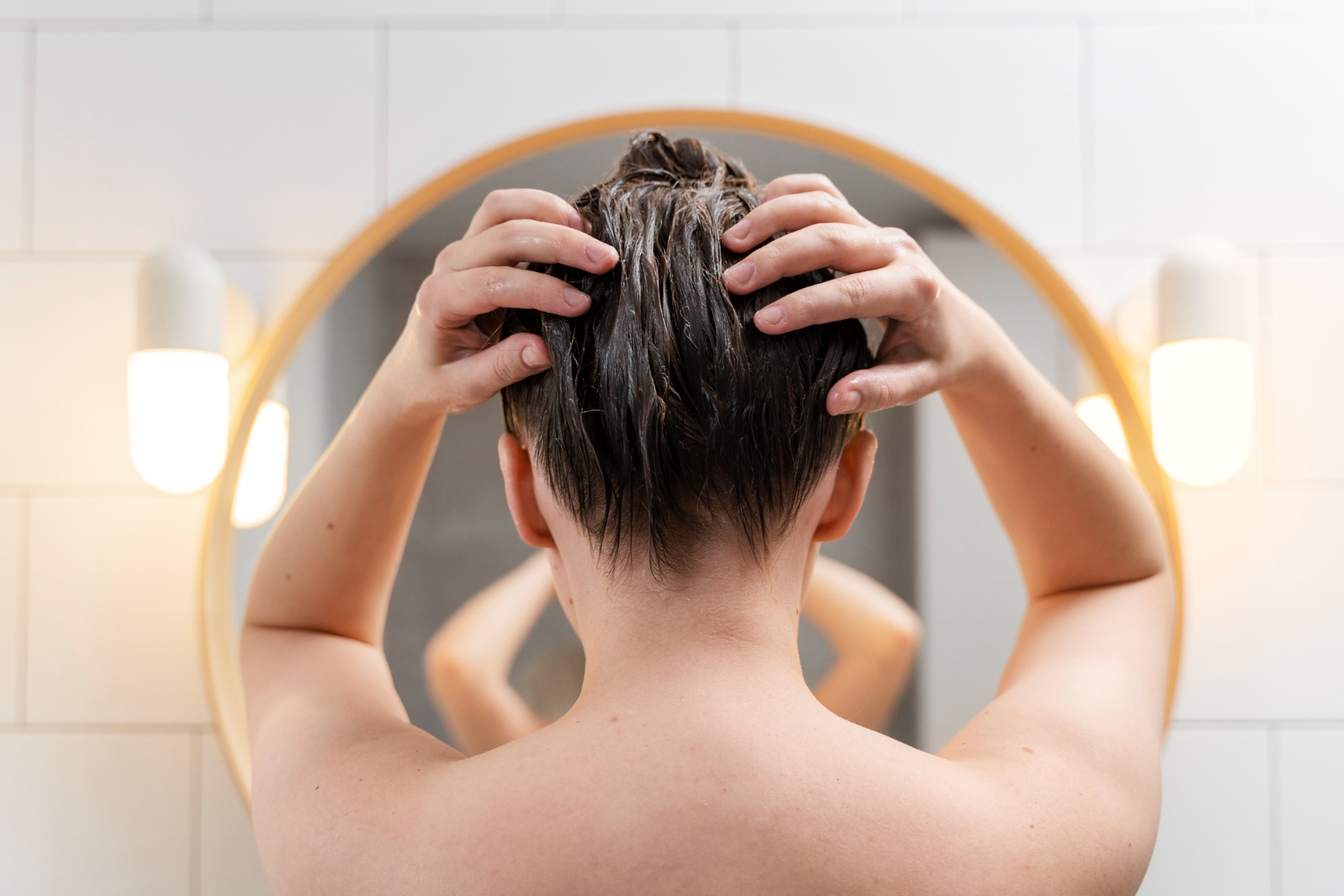
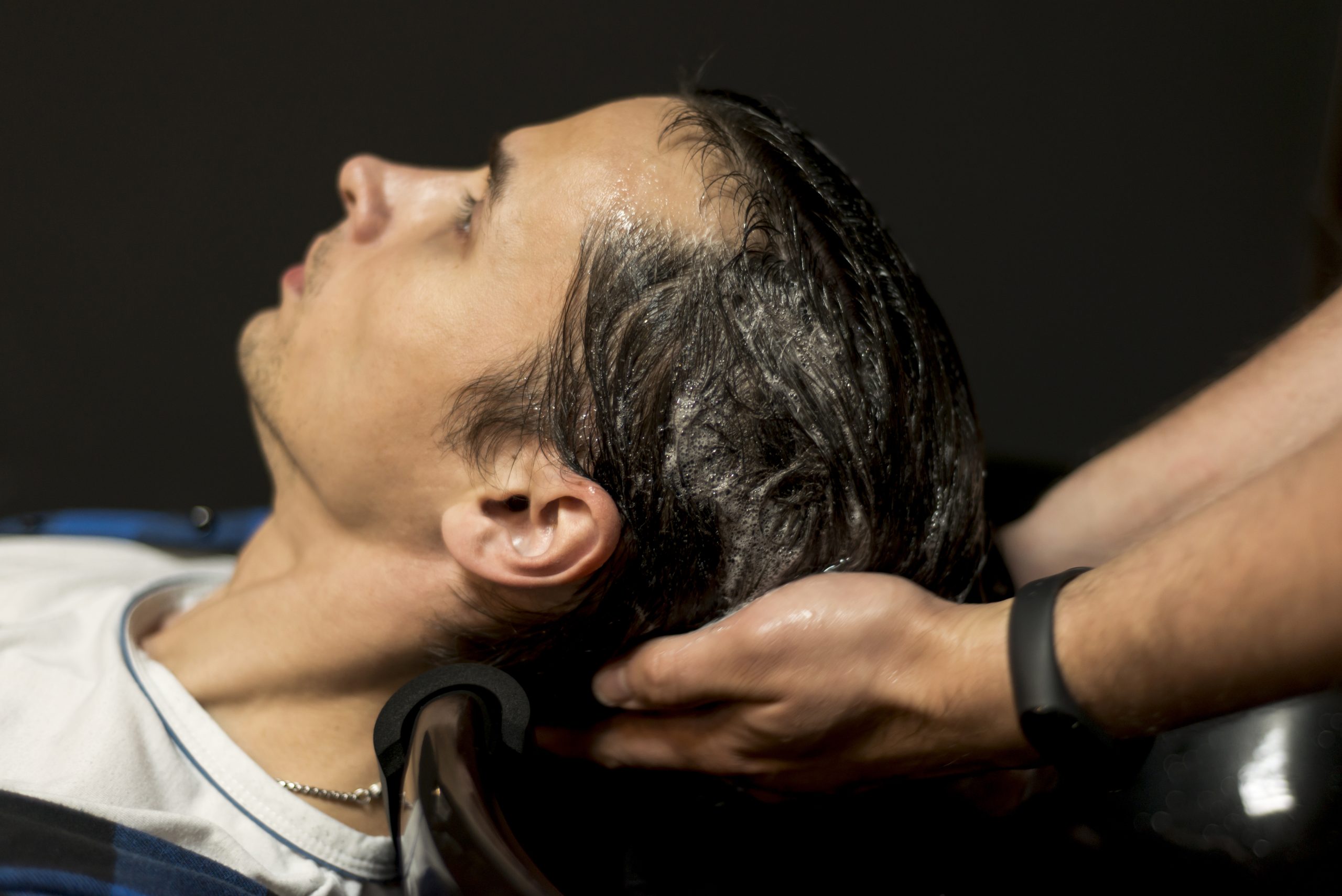
If you’re here because you’re tired of dealing with an oily scalp and all the challenges that come with it, you’re in the right place. Having an oily scalp can be a real hassle, making your hair look greasy and leaving you feeling self-conscious. Not to mention the itchiness and irritation that can come along with it.
But don’t worry! In this comprehensive guide, we’re going to tackle the issue head-on and provide you with practical tips, product recommendations, and even natural remedies to help you regain control over your scalp health. Whether you’ve been battling an oily scalp for ages or it’s a recent development, we’ve got your back.
One of the first steps in addressing an oily scalp is being able to recognize its symptoms. Here are some common signs that indicate an oily scalp:
Greasy, flat hair: Do you find that your hair gets greasy within a day or two of washing it? Does it appear limp and lack volume? These are classic signs of excessive oiliness.
Frequent need for hair washing: If you feel the need to wash your hair more frequently than usual, it could be a sign that your scalp is producing excess oil.
Scalp itchiness and irritation: An oily scalp can lead to itchiness, redness, and discomfort. If you often find yourself scratching your scalp, it may be due to excessive oil production.
By recognizing these symptoms, you can take the necessary steps to address the underlying causes and regain control over your scalp health.
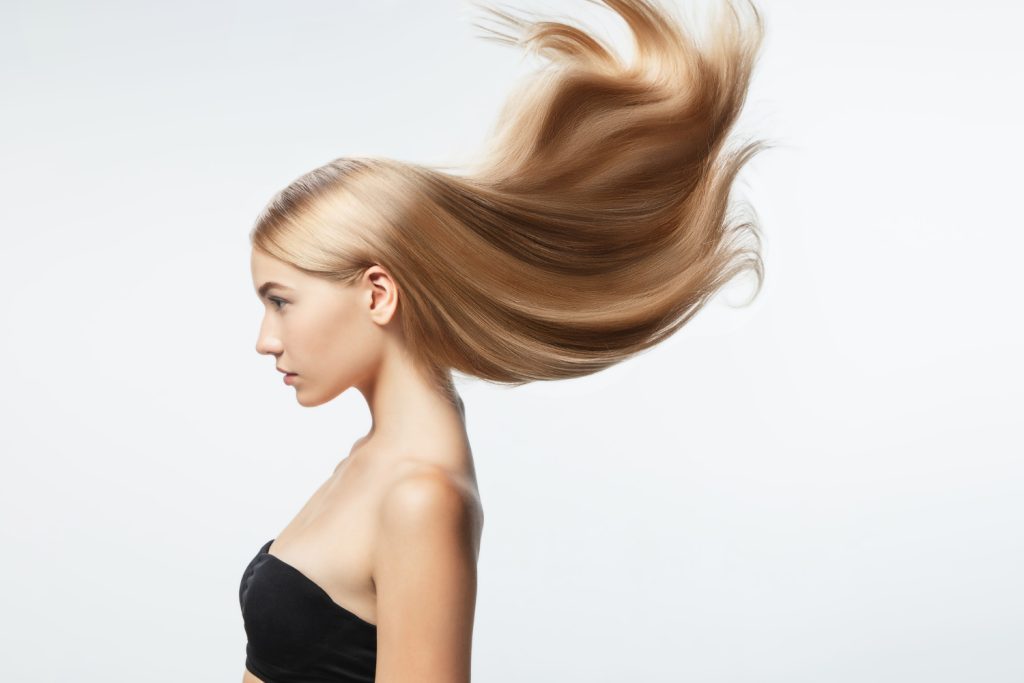
When it comes to managing an oily scalp, there are several dos and don’ts to keep in mind. Let’s start with the dos:
Regular cleansing and shampooing: Washing your hair regularly helps to remove excess oil and keep your scalp clean. Aim for at least every other day, but adjust based on your hair’s needs.
Use of gentle and clarifying shampoos: Look for shampoos specifically designed for oily scalps. These formulations typically contain ingredients that help control oil production without stripping the scalp.
Scalp exfoliation: Exfoliating your scalp once or twice a week can help remove buildup and unclog hair follicles. You can use a gentle scrub or a brush specifically designed for scalp exfoliation.
Balancing the scalp’s pH levels: Maintaining a balanced pH level on your scalp is crucial for healthy oil production. Look for products that are pH-balanced or use natural remedies like apple cider vinegar rinses to restore balance.
Equally important are the don’ts when it comes to managing an oily scalp:
Over-washing or using harsh shampoos: While it’s important to keep your scalp clean, over-washing or using harsh shampoos can strip away too much oil, leading to an overproduction in response. Stick to a regular washing routine and opt for gentle shampoos.
Over-brushing or excessive heat styling: Brushing your hair too often or using excessive heat styling tools can stimulate the oil glands on your scalp, resulting in increased oil production. Limit these practices to maintain a balanced scalp.
Using heavy hair products and oils: Heavy hair products like pomades, serums, and oils can weigh down your hair and make it look greasier. Opt for lightweight and oil-free options instead.
By following these dos and avoiding the don’ts, you can effectively manage and control the oiliness of your scalp.
Choosing the right products is essential for effectively treating an oily scalp. When selecting shampoos and conditioners, keep an eye out for these key ingredients:
Natural and clarifying ingredients: Look for shampoos that contain natural ingredients like tea tree oil, lemon, or peppermint. These can help regulate oil production and provide a refreshing cleanse.
Oil-controlling and balancing formulas: Some shampoos are specifically formulated to control excess oil and balance the scalp. Look for products labeled as oil-controlling, sebum-balancing, or designed for oily scalps.
Avoiding heavy moisturizers and silicones: Moisturizing your hair is important, but heavy moisturizers and silicones can weigh down your hair and make it appear greasier. Opt for lightweight, non-comedogenic formulas.
In addition to shampoos and conditioners, incorporating scalp treatments and serums into your hair care routine can provide targeted solutions for an oily scalp. While home care is crucial, sometimes you need a little extra help to combat an oily scalp. That’s where professional scalp treatments at a salon come in. Trained hairstylists and scalp specialists can provide specialized treatments to address your specific concerns. Consider the following targeted solutions:
Tea tree oil and its benefits for oily scalp: Tea tree oil has natural antiseptic properties that can help control excess oil and soothe an irritated scalp. Look for tea tree oil-based treatments or add a few drops to your shampoo.
Salicylic acid and its exfoliating properties: Salicylic acid can effectively exfoliate the scalp, removing dead skin cells and excess oil. Look for scalp treatments or shampoos that contain salicylic acid to unclog hair follicles and prevent buildup.
Niacinamide to regulate oil production: Niacinamide is a vitamin B derivative that can regulate sebum production and promote a balanced scalp. Look for serums or treatments with niacinamide to help control oiliness.
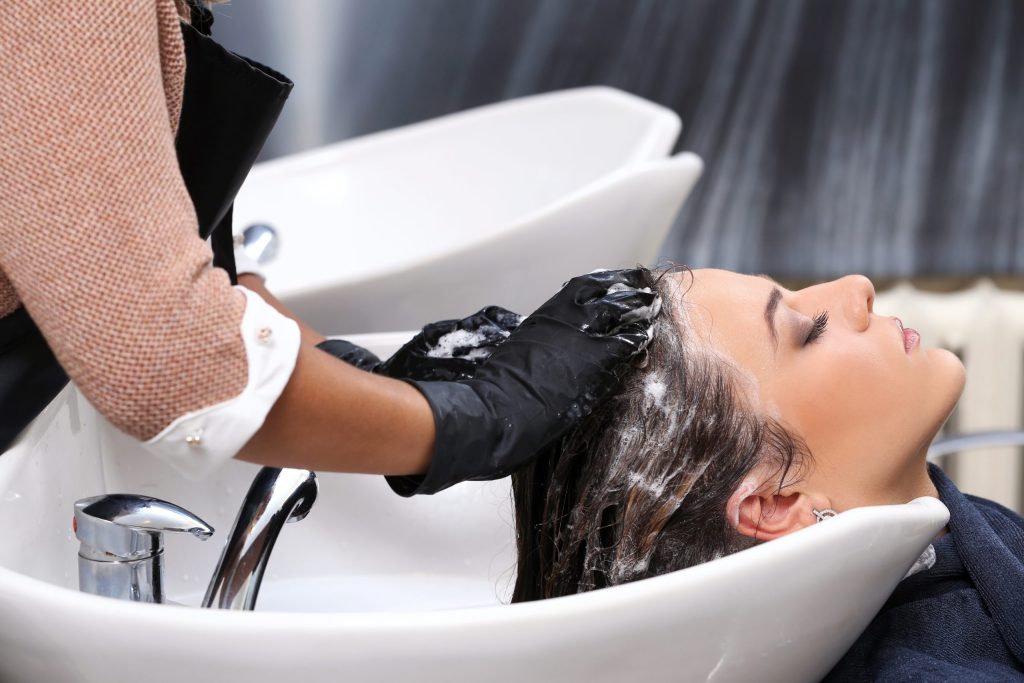
The food you consume plays a role in your scalp’s health. Consider the following dietary considerations to help combat an oily scalp:
Incorporate more fruits and vegetables: Fruits and vegetables are rich in essential vitamins, minerals, and antioxidants that promote overall scalp health. Aim to include a variety of colorful produce in your daily meals.
Reduce consumption of oily and fried foods: Consuming excessive amounts of oily and fried foods can contribute to oiliness on the scalp. Limit your intake of these foods and opt for healthier cooking methods, such as baking or grilling.
Importance of staying hydrated: Drinking an adequate amount of water helps maintain overall scalp and body hydration. Stay hydrated throughout the day by consuming water and hydrating foods like fruits and vegetables.
Stress can have a significant impact on your scalp health, including oil production. Here are some stress management techniques to consider:
Practice relaxation techniques: Engage in activities like meditation, deep breathing exercises, or yoga to help reduce stress levels.
Take time for self-care: Prioritize self-care activities that help you relax and unwind, such as taking baths, reading, or spending time in nature.
Seek support: If stress becomes overwhelming, don’t hesitate to seek support from friends, family, or professional counselors.
By managing stress effectively, you can reduce its impact on your scalp health and oil production.
Engaging in regular exercise not only benefits your overall health but can also improve scalp health. Consider the following ways exercise can combat oily scalp:
Increase blood flow to the scalp: Exercise improves blood circulation, delivering essential nutrients to the scalp and promoting a healthier environment for hair growth.
Sweating as a natural cleansing process: When you exercise, you sweat, which helps cleanse the scalp and remove impurities, including excess oil.
Find activities you enjoy: Incorporate exercises you enjoy into your routine, such as jogging, cycling, or dancing, to make it easier to stick to a regular exercise regimen.
Managing an oily scalp doesn’t have to be a constant battle. By following the tips and techniques outlined in this ultimate guide, you can regain control over your scalp health and enjoy healthier, more balanced hair.
Remember, everyone’s scalp is unique, so it may take some experimentation to find the perfect combination of treatments and lifestyle adjustments that work for you.

